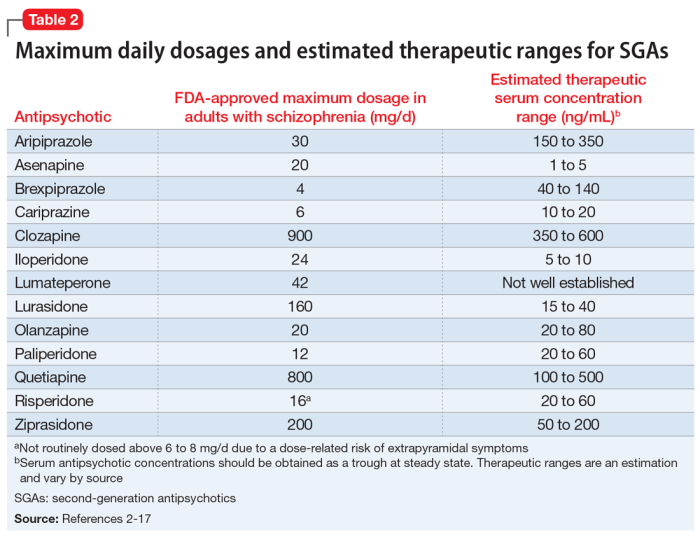Embarking on a journey through the realm of psychiatric medications in 2025, this piece delves into the importance of safety and effectiveness in the treatment of mental health disorders. As we navigate the landscape of evolving medications, key factors driving their development come to light, offering a glimpse into the future of psychiatric treatment.
 When it comes to prescribing psychiatric medications, safety considerations are paramount. The potential side effects, drug interactions, and overall impact on a patient's well-being must be carefully assessed to ensure the best possible outcomes.
When it comes to prescribing psychiatric medications, safety considerations are paramount. The potential side effects, drug interactions, and overall impact on a patient's well-being must be carefully assessed to ensure the best possible outcomes.
Overview of Top Psychiatric Medications in 2025
Psychiatric medications play a crucial role in the treatment of mental health disorders, providing relief for individuals struggling with conditions such as depression, anxiety, bipolar disorder, and schizophrenia. These medications help to balance neurotransmitters in the brain, improving symptoms and overall quality of life for patients.Over the years, psychiatric medications have evolved significantly, with advancements in pharmacology leading to the development of more targeted and effective treatments. The introduction of selective serotonin reuptake inhibitors (SSRIs), serotonin-norepinephrine reuptake inhibitors (SNRIs), atypical antipsychotics, and mood stabilizers has revolutionized the field of psychiatry, offering new options for patients with varying needs.In 2025, key factors are driving the development of psychiatric medications, including advances in neuroscience, genetics, and personalized medicine. Researchers are focusing on identifying biomarkers and genetic factors that can help predict an individual's response to specific medications, allowing for more tailored and effective treatment plans. Additionally, there is a growing emphasis on developing medications with fewer side effects and improved safety profiles, enhancing the overall tolerability and compliance of patients undergoing treatment for mental health disorders.Safety of Psychiatric Medications
 When it comes to prescribing psychiatric medications, safety considerations are paramount. The potential side effects, drug interactions, and overall impact on a patient's well-being must be carefully assessed to ensure the best possible outcomes.
When it comes to prescribing psychiatric medications, safety considerations are paramount. The potential side effects, drug interactions, and overall impact on a patient's well-being must be carefully assessed to ensure the best possible outcomes.
Comparison of Traditional vs. Newer Psychiatric Medications
Traditional psychiatric medications, such as older generation antipsychotics and antidepressants, often come with a range of side effects that can be challenging for patients to tolerate. These side effects may include weight gain, sexual dysfunction, and increased risk of metabolic disorders. On the other hand, newer psychiatric medications, including atypical antipsychotics and selective serotonin reuptake inhibitors (SSRIs), have been developed with a focus on improving safety profiles. These newer options tend to have fewer side effects and a more favorable tolerability profile for many patients.Advancements in Technology and Research
Advancements in technology and research have greatly enhanced the safety of psychiatric medications. For example, the use of pharmacogenetic testing allows healthcare providers to personalize medication regimens based on an individual's genetic makeup, helping to predict how a patient may respond to a specific medication and potentially reducing the risk of adverse reactions. Additionally, ongoing clinical trials and research studies continue to explore new treatment options with improved safety profiles, providing hope for better outcomes and quality of life for individuals living with psychiatric conditions.Effectiveness of Psychiatric Medications
Psychiatric medications play a crucial role in managing various mental health conditions by targeting specific symptoms and improving overall well-being. In recent years, advancements in pharmacology have led to the development of highly effective medications that have significantly improved the quality of life for many individuals.Examples of Psychiatric Medications for Specific Mental Health Conditions
- Antidepressants like SSRIs (Selective Serotonin Reuptake Inhibitors) such as Prozac and Zoloft are known for effectively treating depression and anxiety disorders.
- Atypical antipsychotics like Abilify and Risperdal are effective in managing symptoms of schizophrenia and bipolar disorder.
- Mood stabilizers such as Lithium and Depakote are commonly used to treat bipolar disorder and stabilize mood swings.














